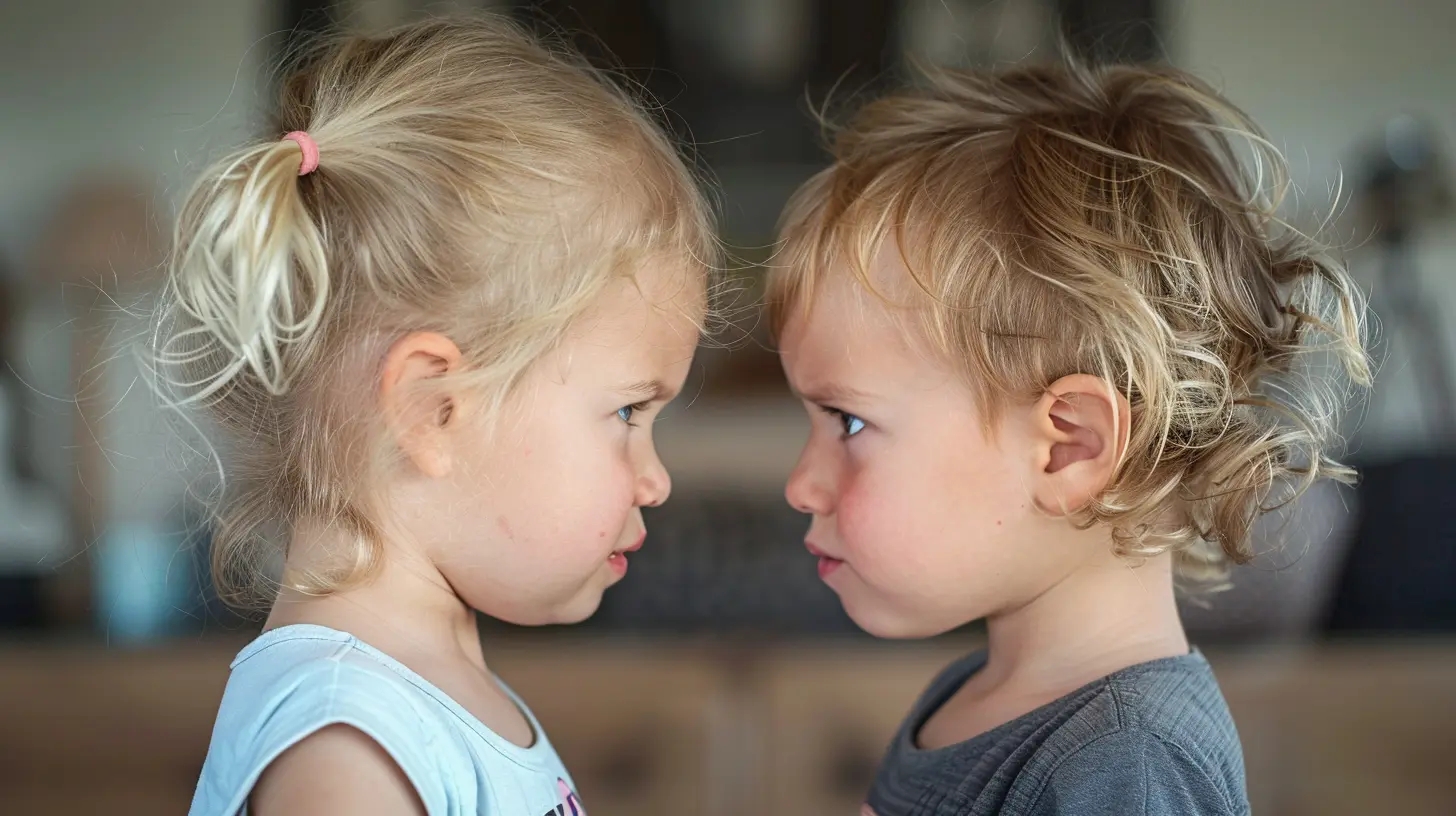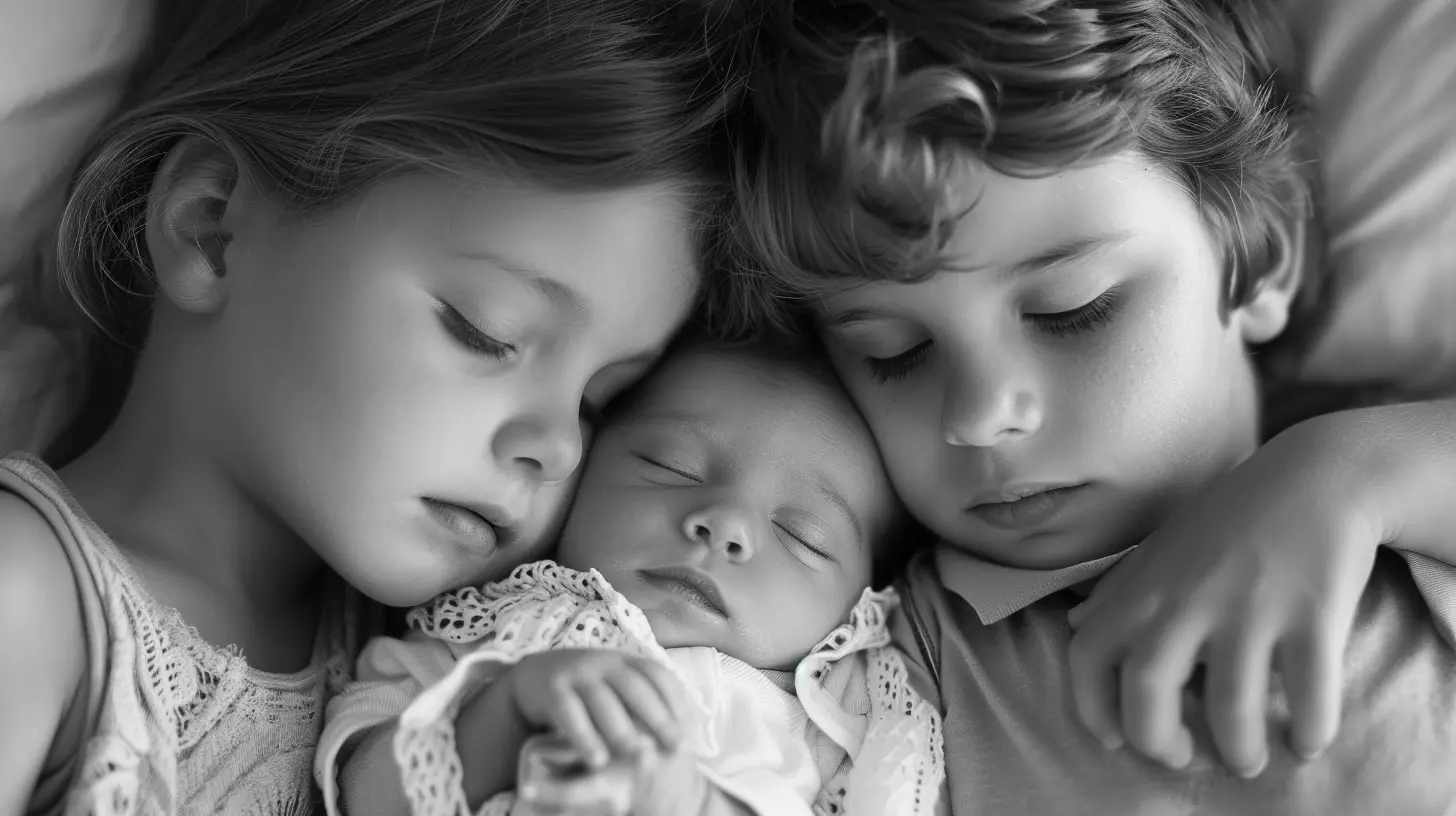The Role of Shared Responsibility in Sibling Relationships
19 August 2025
Siblings — one minute they're best friends building pillow forts, and the next, they're in a tug-of-war over the last slice of pizza. Anyone with more than one child can tell you, sibling relationships are a rollercoaster. But here's a secret not many people talk about: something magical happens when we teach our kids to share responsibility with each other. It doesn’t just lighten the load. It brings them closer, helps them build stronger bonds, and teaches life skills that pay off in the long run.
So, pull up a chair, grab your cup of coffee, and let’s chat about how shared responsibilities can shape the dynamics between siblings in the best ways possible.
What Do We Mean By Shared Responsibility?
It’s easy to assume shared responsibility just means doing chores together — like one kid washing dishes while the other dries. Sure, that's part of it, but it goes much deeper.Think of it this way: shared responsibility is about learning how to work as a team. It’s about both the "what" of doing something and the "how" of cooperating, communicating, and caring. Whether it’s cleaning a room, helping a younger sibling with homework, or solving conflicts together, the key is fostering a sense of “we’re in this together.”
Why Is It Important in Sibling Relationships?
Let’s be real — life at home can get chaotic. With busy schedules, school, work, and all the moving parts of family life, siblings need more than just proximity to bond. That’s where sharing responsibility steps in like that glue that brings people closer.Here’s why it matters:
1. Strengthens Teamwork and Cooperation
When kids share tasks or tackle goals together, they learn how to work as a team. It teaches patience, compromise, and negotiation. They’re no longer just individuals co-existing — they become collaborators.Think of it like a mini group project. Ever been the one who does all the work in a group while others slack off? Yeah, it’s frustrating. But when everyone contributes, there’s a sense of fairness that actually makes hard work — dare we say — enjoyable.
2. Reduces Rivalry and Builds Mutual Respect
Sharing responsibility gives kids a sense of equity. It helps minimize that age-old problem: “Why do I have to do more than them?” (Cue the dramatic eye roll.)When responsibilities are balanced and shared, each child gets to feel equally important. That balance builds respect because they come to understand the value of each other’s efforts.
3. Creates Teachable Moments
Through shared responsibility, kids naturally encounter opportunities to problem-solve, apologize, forgive, and sometimes even fail together. Those shared experiences are rich with life lessons — and they stick way more than lectures ever do.
How Shared Responsibility Evolves with Age
Just like kids, their responsibilities grow and evolve over time. Here’s how you can build shared responsibility based on age:Toddlers & Preschoolers (Ages 2–5)
Even tiny humans can pitch in! Sure, they may not be scrubbing floors or mowing the lawn, but they can:- Help pick up toys with an older sibling.
- “Assist” in setting the table (maybe just the napkins).
- Tag along with a sibling during tidy-up time.
The goal? Let them feel included. You’re planting the seeds of teamwork early on.
Elementary Schoolers (Ages 6–10)
Now is the golden window for building habits.- Pair siblings up for tasks: one can vacuum while the other dusts.
- Have older siblings read to the younger ones.
- Let them work together to make lunch for the family once a week.
It’s not about perfection; it’s about participation.
Tweens and Teens (Ages 11+)
With more maturity comes more meaningful collaboration.- Teens can mentor younger siblings in schoolwork or life skills.
- They can co-manage schedules or help plan a sibling project, like organizing a birthday party for dad.
- Encourage them to resolve conflicts directly with their sibling — you’re there for backup, but let them lead.

Practical Ways To Encourage Shared Responsibility
Okay, so we’ve covered the why and the when. Now let’s dive into the how. How can parents nurture this concept at home without turning it into a battlefield?1. Start With Small, Consistent Tasks
Don’t expect your kids to co-write the family budget on Day 1. Begin with simple, daily routines:- Making beds together.
- Feeding the family pet (take turns or do it as a team).
- Cleaning up after dinner.
Assign tasks that naturally require teamwork. That way, the shared responsibility feels intentional, not forced.
2. Use Chore Charts with a Twist
We all love a good visual aid. But instead of just listing individual tasks, try grouping some as “buddy chores.” For example:- “Sarah and Jason: Clean garage shelves together on Saturday.”
- “Emma and Miles: Fold laundry as a team.”
This subtle shift creates an expectation of cooperation.
3. Celebrate Team Wins
Did the kids clean their room together without fighting? Did they pull off washing mom’s car just in time for her work event? Celebrate it!Shout it out at dinner. Give a high-five, a sticker, or a special Friday ice cream run. Kids remember how they felt more than what they did — make it a positive memory.
4. Model It Yourself
Kids imitate what they see. When they watch you and your partner share responsibilities — or better yet, when you include them in shared adult tasks — they learn firsthand that no one carries the weight alone.Let them see you help each other, compromise, say thank you, and pick up the slack when someone’s tired. That’s the kind of behavior that sticks.
Dealing with the "That's Not Fair!" Syndrome
Ah yes — the battle cry of every child since the dawn of time. “That’s not fair!” and “Why do I have to do everything?” are common refrains when it comes to responsibilities.Here's the thing: Fair doesn’t always mean equal. It means giving each child what they need, in ways that make sense for their age, abilities, and personality.
To navigate this:
- Be transparent: Explain why one sibling may have a different role (e.g., “Your little sister can’t use the vacuum yet, but she can sort socks.”).
- Rotate roles: Let them switch tasks once in a while so it doesn’t feel static or unfair.
- Highlight strengths: Frame tasks based on what they’re good at. “You’re great at organizing — can you help your brother with his closet?”
When kids feel understood and valued, they're more likely to cooperate.
How Shared Responsibility Shapes Lifelong Relationships
Here’s maybe the most beautiful takeaway: shared responsibility doesn’t just raise helpful kids — it cultivates connected humans.When siblings learn to rely on and support each other, they build a foundation of trust. The fights don’t go away forever (let's be honest, they’re still going to squabble over the remote), but underneath it is a growing sense of loyalty and understanding.
As they grow into teens and adults, that connection turns into:
- Willingness to support each other emotionally.
- Being reliable friends and confidants.
- Having each other’s backs when life gets tough.
It’s not always about the chores. It’s about what those shared experiences represent.
Final Thoughts: It’s the Little Things
You don’t need a fancy system or a chore chart that looks like something off Pinterest (though if that’s your jam, go for it). What matters is consistency, encouragement, and showing your kids that working together is part of being a family.Day by day, as they help each other zip up jackets, take turns stacking dishes, or team up to tidy the backyard, your children are learning something priceless: That they’re not just siblings — they’re a team.
And really, isn’t that what family is all about?
all images in this post were generated using AI tools
Category:
Sibling BondingAuthor:

Max Shaffer
Discussion
rate this article
1 comments
Jillian Rivera
Shared responsibility fosters cooperation, empathy, and stronger sibling bonds.
August 24, 2025 at 2:53 AM

Max Shaffer
Thank you! I completely agree—shared responsibility is key to building lasting connections and understanding among siblings.


